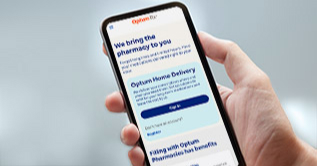This is a modal window.
What is an HRA
Narrator:
Paying for healthcare is now easier than ever with a health reimbursement arrangement, or HRA.
What is an HRA? An HRA is an employer-funded account that you can use to pay for eligible out-of-pocket healthcare expenses like medical, dental, vision and other health expenses you would normally have to pay for with your own personal funds.
You can use these funds to pay for any eligible medical expense for you, your spouse, or your eligible dependents. Plus, it’s easy to use. Your employer will contribute to your HRA. The funds deposited into the HRA are not considered part of your income and therefore are not subject to FICA, worker’s compensation, or income-tax.
Use your HRA to cover hundreds of eligible healthcare expenses. And remember to save your receipts just in case you need them later.
The Optum Financial mobile app is a secure, interactive way for you to access your information on the go. You can view account information, enter a new claim, and even take a photo of your receipt with your mobile device and upload it directly to your account.
With convenient payment options, online account features, health tools, mobile technology, and expert customer service, the health reimbursement arrangement may be a better way to pay for healthcare.
Flexible spending accounts (FSAs), dependent care assistance programs (DCAPs), health reimbursement arrangements (HRAs), Commuter and Parking Benefits, Tuition Assistance Plans, Adoption Assistance Plans, Surrogacy Assistance Plans, Wellness Benefits, and Lifestyle Accounts (collectively, “Employer-Sponsored Plans”) are administered on behalf of your plan sponsor by Optum Financial, Inc. or ConnectYourCare, LLC and are subject to eligibility and restrictions. Employer-Sponsored Plans are not individually owned and amounts available under the Employer-Sponsored Plan are not FDIC insured.
This communication is not intended as tax or legal advice. Consult a legal or tax professional for advice on eligibility, tax treatment, and restrictions. Please contact your plan administrator with questions about enrollment or plan restrictions.
Your employer sponsored plan may exclude reimbursement for certain categories of items. Check your plan document and summary plan description or contact your benefits department for specific coverage details.



